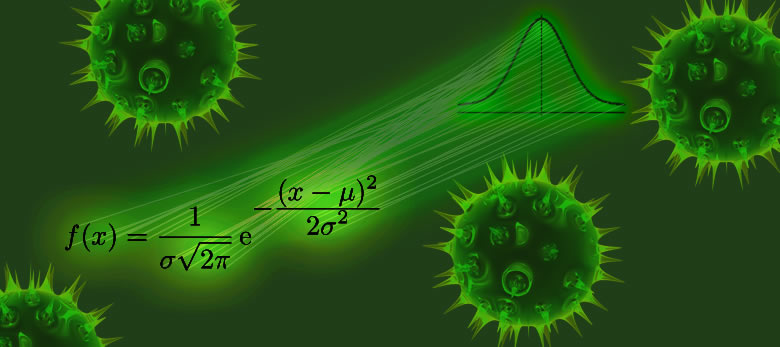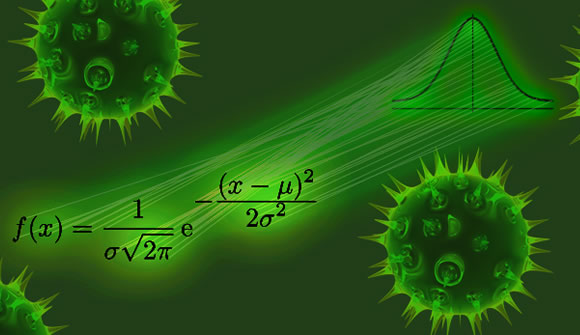Chemistry
Abstract
Chemistry is the science that studies how the atoms are arranged in molecules, materials and in living organisms, and, even more importantly, how do they rearrange and thus make up for nearly all the processes of every day life.
Two master options are available at the Department of Chemistry, namely the programme «Chemistry» (90 ECTS credits) and the programme «Chemistry, option Chemistry, Communication and Innovation» (120 ECTS credits). The two options are made of five compulsory modules (organic chemistry, inorganic chemistry, physical chemistry, materials chemistry and research) and two elective modules to be selected between the following options: analytical chemistry, advanced organic chemistry, advanced inorganic chemistry, advanced materials chemistry, polymer chemistry. The research module is dedicated to experimental laboratory work and it is aimed at acquiring the capacity to synthesise compounds, characterising their properties, and determining the structure of unknown compounds. Depending on the choice of modules, students acquire the command of advanced synthetic, analytic, spectroscopic, theoretical or industrial tools. Concerning the programme «Chemistry, option Chemistry, Communication and Innovation» (120 ECTS credits), an extra module of 30 ECTS credits is dedicated to transferable skills: writing of scientific papers and articles, statistics and project planning, innovation and entrepreneurship, as well as a research internship in a university or a company in Switzerland or abroad. The final six months consist of a master thesis, carried out on creative research in one of the Chemistry Department's research groups.
Profile of the study programme
Motivation
Chemistry is a science on how are atoms arranged in molecules, materials and in living organisms, and, even more importantly, how do they rearrange and thus make up for nearly all the processes of every day life. Being a chemist means having a deep knowledge of the laws governing these processes, but, again perhaps even more importantly, chemistry is a creative craft, whereby a chemist masters the art of finding out the structure of unknown materials and of creating new molecules and materials, which have not yet existed in the universe, and which have useful properties like giving off light when voltage is applied, in the organic light emitting diode (OLED). The achievements of chemistry accompany each of us constantly in a modern society – most people do not even realise it – be it as advanced polymers in train, cars, homes, mobile phones and virtually every object of daily use, be it as medication, be it as a method of supervising the safety of our food and environment. The largest challenges are waiting for the coming generation – for you! The humanity will need processes and materials which will substitute burning fossil fuels to gain energy, drugs to heals hitherto incurable diseases, or to improve the OLEDs to extend their lifetime, make them more energy-efficient and suitable even for large displays or for everyday lighting. By studying chemistry you will become the designers and the creative craftsmen to realise these new materials and processes.
Objectives
Depending on your choice of modules you will acquire the command of advanced synthetic, analytic, spectroscopic, theoretical or industrial tools. The curriculum for «Chemistry» (90 ECTS credits) and «Chemistry, option Chemistry, Communication and Innovation» (120 ECTS credits) consists of five compulsory modules (inorganic chemistry, organic chemistry, physical chemistry, materials chemistry, research) and two optional modules out of the six offered by the Department of Chemistry:
- Advanced organic chemistry module, consisting of Bioorganic Chemistry, Physical Organic Chemistry, Selected Topics in Organic Chemistry and Literature Study in Organic Chemistry;
- Analytical chemistry module, consisting of Analytical Chemistry (parts A and B), and Analytical Chemistry Seminar;
- Advanced synthetic tools module, consisting of Synthesis of Complex Molecules, Organometallic Chemistry, the Chemistry of Unpaired Electrons and a Seminar on Advanced Synthetic Methods;
- Advanced inorganic chemistry module, consisting of Supramolecular Chemistry, Electronic Structure of Complexes, Molecular Magnetism, Bioinorganic Chemistry, Seminar in Inorganic Chemistry;
- Materials module, consisting of Nanomaterials, Crystallography, Crystal growth and Technology, Solid State Chemistry and a Seminar on Materials;
- Polymers module, consisting of Polymer Science I and II.
In addition, an Industrial chemistry module may be chosen at the College of Engineering and Architecture of Fribourg EIA-HTA (University of Applied Sciences of Western Switzerland HES-SO).
Each module consists of lectures where you acquire new knowledge and the capacity to design synthetic paths or interpret spectra as an example. There are seminars where you learn to study literature and to communicate about science. Eventually, since chemistry is not only knowledge, but also (perhaps primarily) «know how», an entire module (research) is dedicated to experimental and laboratory work. Here you will acquire the capacity to make (synthesise) desired compounds, characterise their properties, and to determine the structure of unknown compounds. For the programme «Chemistry, option Chemistry, Communication and Innovation» (120 ECTS credits), a compulsory additional module of 30 ECTS credits is foreseen, containing courses that will allow you to acquire «soft skills» aimed at developing the ability to write scientific papers and articles, project planning and advanced statistical interpretation of experimental results, innovation and entrepreneurship. An internship at another university or in industry, in Switzerland or abroad, is planned to allow you to refine your professional skills.
The final six months consist of a master thesis, where you will have the opportunity to do «real», innovative research. You can choose one of the research groups of the Department of Chemistry for this project. Few students choose an outside academic or industrial institution for the practical work; it is allowed provided the project is approved by the Department and is couched by one of the Department's professors.
Academic and career openings
The studies qualify you for a broad spectrum of employments. More than half of the students chose to pursue a programme towards a Ph.D., often in an English-speaking country. During the 3-4 year Ph.D. programme you'll learn to carry out independent research. The potential employers for both master's degree holders and Ph.Ds. are the pharmaceutical industry, chemical industry, food industry, companies supplying advanced equipment for chemical analysis and research, cantonal or federal control and regulatory establishments or drug authorisation agencies. Some graduates pursue carriers further away from the classical chemistry profession, for example in an IT company or a NGO. A highly competitive but very interesting option is to pursue a carrier of academic research and teaching, where the first step is generally an advanced postdoctoral research work at a prestigious university or national laboratory abroad.
An important carrier option is that of teaching at a academic upper secondary schools (see «Teacher Education for Secondary Level»).
Studies organisation
Structure of studies
90 ECTS credits, 3 semesters
or
120 ECTS credits, 4 semesters (option «Chemistry, option Chemistry, Communication and Innovation»)
Curriculum
http://studies.unifr.ch/go/vBvMa
Admission
Master's degree programmes are built on the knowledge and abilities that were acquired when obtaining a bachelor's degree.
Holders of a bachelor's degree awarded by a Swiss university are admitted to a master's degree programme without any preconditions if they have earned 60 or 90 ECTS credits depending on the chosen master's degree programme within the corresponding discipline. However, additional requirements can be required. The same applies to holders of a bachelor's degree awarded by a foreign university, provided that the bachelor's degree is recognised and considered equivalent by the University of Fribourg.
Holders of a bachelor's degree awarded by a Swiss or a foreign university, provided that the bachelor's degree is recognised and considered equivalent by the University of Fribourg, who do not fulfil this condition can be admitted to a master's degree programme with preconditions (which must be successfully completed before starting the master's degree programme) and/or additional requirements (which can be completed during the master's degree programme). The preconditions and/or additional requirements may not exceed 60 ECTS credits in total. The same applies to holders of a bachelor's degree awarded by a Swiss university of applied sciences, according to existing agreements.
The respective conditions of admission for each master's degree programme are reserved.
Alternatives
Also offered as a minor study programme (30 ECTS credits) as part of the Diplôme d'Enseignement pour les Ecoles de Maturité (DEEM)/Lehrdiplom für Maturitätsschulen (LDM).



